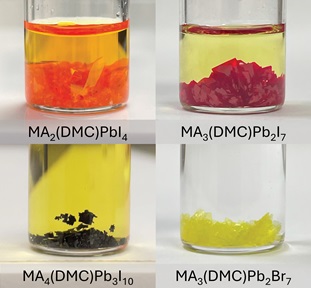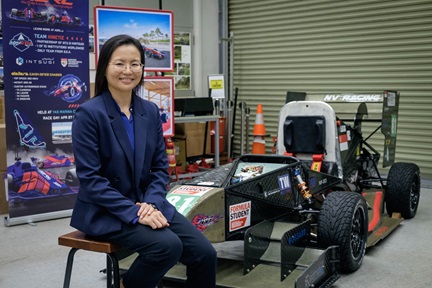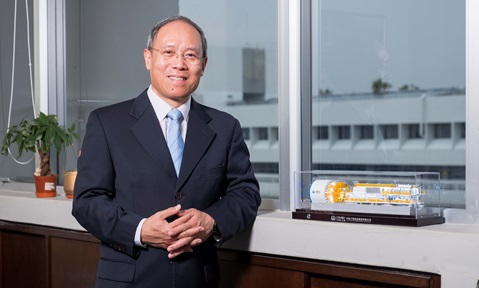Me and my robot colleague: Assoc Prof Ang Wei Tech
Combining data-driven approaches and machine learning methods, executive director of NTU's Rehabilitation Research Institute of Singapore Assoc Prof Ang Wei Tech develops assistive robots to assist the elderly and people with disability.

Technological advances in additive manufacturing, robotics and automation are rapidly changing how we build new products and interact with our environment. Pushing Frontiers talks to three NTU researchers who are leaders in Industry 4.0. They are spearheading the future of construction, developing assistive robots to help the elderly and people with disabilities in various tasks, and shedding light on people’s behaviour towards robotic assistants.
“I believe that robots can make meaningful contributions to help solve real-world problems in healthcare,” says Assoc Prof Ang Wei Tech, Executive Director of the Rehabilitation Research Institute of Singapore (RRIS) in NTU. Assoc Prof Ang also holds joint appointments in NTU’s School of Mechanical and Aerospace Engineering and Lee Kong Chian School of Medicine.
Using a novel data-driven approach and machine learning methods, he develops assistive robots to support people with disability and the elderly in applications such as mobility, fall prevention and activities of daily living. These personalised human-robot interfaces allow robot-user co-adaptation and optimal adjustment of the robotic assistance to the user’s ability level. Several assistive robots developed by his team are being tested in human trials and he plans to commercialise the technology via a spin-off company.
Assoc Prof Ang is also behind NTU spin-off Techssisted Surgical Pte Ltd, which aims to commercialise one of his inventions—a robotic instrument that allows surgeons to achieve ten times better positioning accuracy during microsurgery. This instrument came in first out of 3,000 teams in the 10th China Shenzhen Innovation and Entrepreneurship Competition in 2018, and first in the International Creatineer Competition (AI and Robotics) in 2019. It will undergo its first-in-human trial in the coming months.
At RRIS, Assoc Prof Ang integrates multiple disciplines, including biomechanics, motor neuroscience, social sciences, artificial intelligence, robotics and sensing technologies, in the Institute’s rehabilitation research programmes (read more about RRIS on pages 18 to 19). He also established a consortium of 12 rehabilitation institutions across seven Asian countries and territories, which is working together to build the world’s largest Asian-centric database on physical abilities of patients with musculoskeletal, neurological and ageing-related diseases and traumas.
In another role, Assoc Prof Ang is Module Head and Principal Investigator of the Connected Rehabilitation Technology and Assistive Devices group in the Future Health Technologies programme of the Singapore-ETH Centre, a research centre set up by ETH Zurich and Singapore's National Research Foundation.
The article appeared first in NTU's research & innovation magazine Pushing Frontiers (issue #19, August 2021).














/enri-thumbnails/careeropportunities1f0caf1c-a12d-479c-be7c-3c04e085c617.tmb-mega-menu.jpg?Culture=en&sfvrsn=d7261e3b_1)

/cradle-thumbnails/research-capabilities1516d0ba63aa44f0b4ee77a8c05263b2.tmb-mega-menu.jpg?Culture=en&sfvrsn=1bc94f8_1)


.tmb-listing.jpg?Culture=en&sfvrsn=29c7e020_1)
.tmb-listing.jpg?Culture=en&sfvrsn=55153609_1)


